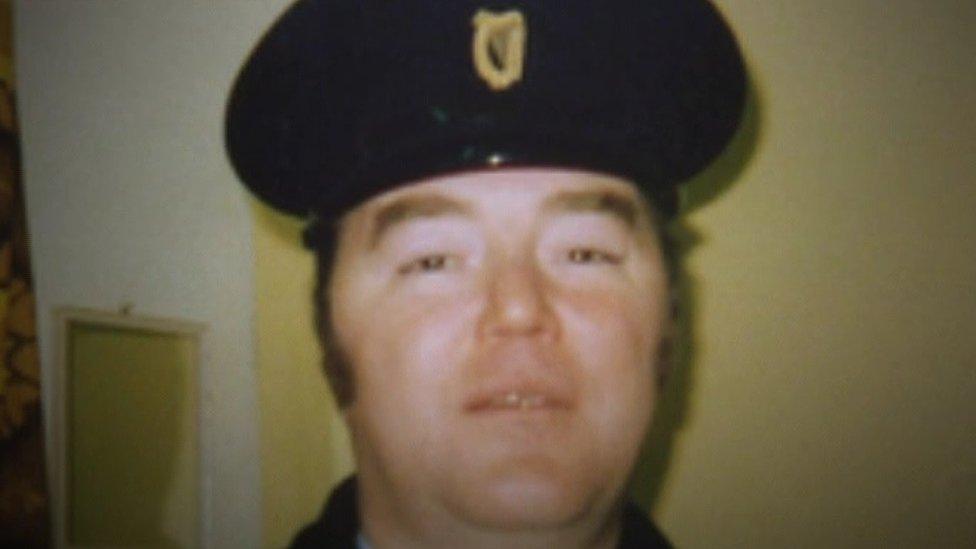Brian Stack killing: Sinn F茅in TDs deny murder involvement
- Published

Brian Stack was shot in the back of the neck as he left a boxing match in 1983
Two Sinn F茅in TDs have angrily denied they had any involvement in the murder of a senior prison officer in the Republic of Ireland in 1983.
Dessie Ellis and Martin Ferris shouted their denials in the Dail shortly after their party leader Gerry Adams made a statement on his knowledge of the killing.
Mr Ellis said he was in prison at the time.
Both men were responding to comments made by Fine Gael TD Alan Farrell.
Mr Stack, chief prison officer at the high-security Portlaoise Prison, was shot in the back of the neck as he left a boxing match in 1983.
He was left paralysed and died 18 months later.
In his statement, Mr Adams said that during Ireland's general election campaign in February, he had emailed Irish police commissioner No铆r铆n O'Sullivan a list of four republicans who may have been involved.
The Sinn F茅in leader said he had been given the names by Austin Stack, himself a senior prison officer and son of Brian Stack.
Mr Adams said Austin Stack told him the names were given to him (Mr Stack) by journalists and Garda sources.
But Mr Stack, who with his brother, Oliver, and Mr Adams in 2013 in Northern Ireland, denies handing over any names.
Sinn F茅in TDs Dessie Ellis and Martin Ferris denied any involvement in Mr Stack's murder
At the time of the meeting, the senior republican told the brothers the IRA had not sanctioned the shooting of their father and the person responsible had been disciplined.
In his Dail statement, Mr Adams repeated that he had been given the names by Austin Stack and he denied that he had described the four as suspects.
The Sinn F茅in leader said that although he had no information about the killing he wrote to the Garda commissioner because Fianna Fail and Fine Gael had sought to exploit the issue during the general election campaign.
He told the Dail that the peace process had worked without senior IRA people being publicly identified and said the issue highlighted the lack of a process for dealing with the past
- Published6 December 2016
- Published9 August 2013
- Published9 May 2013
- Published28 December 2012